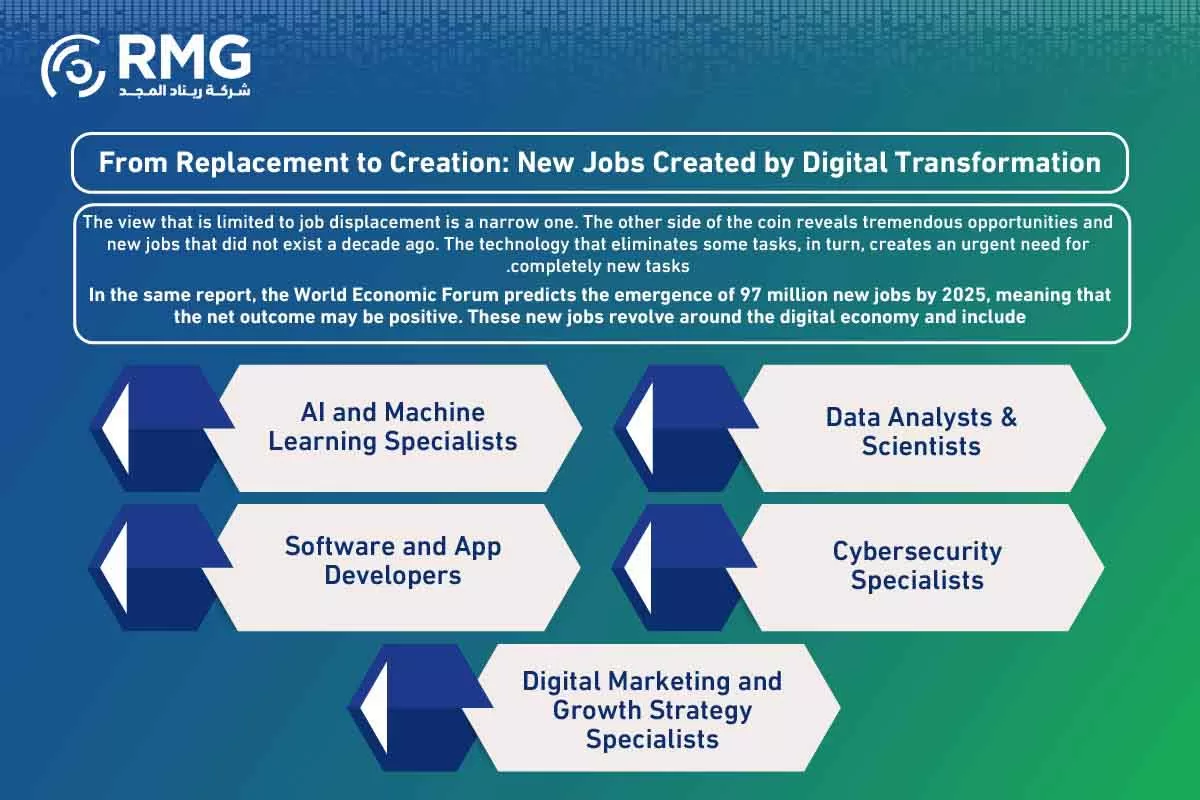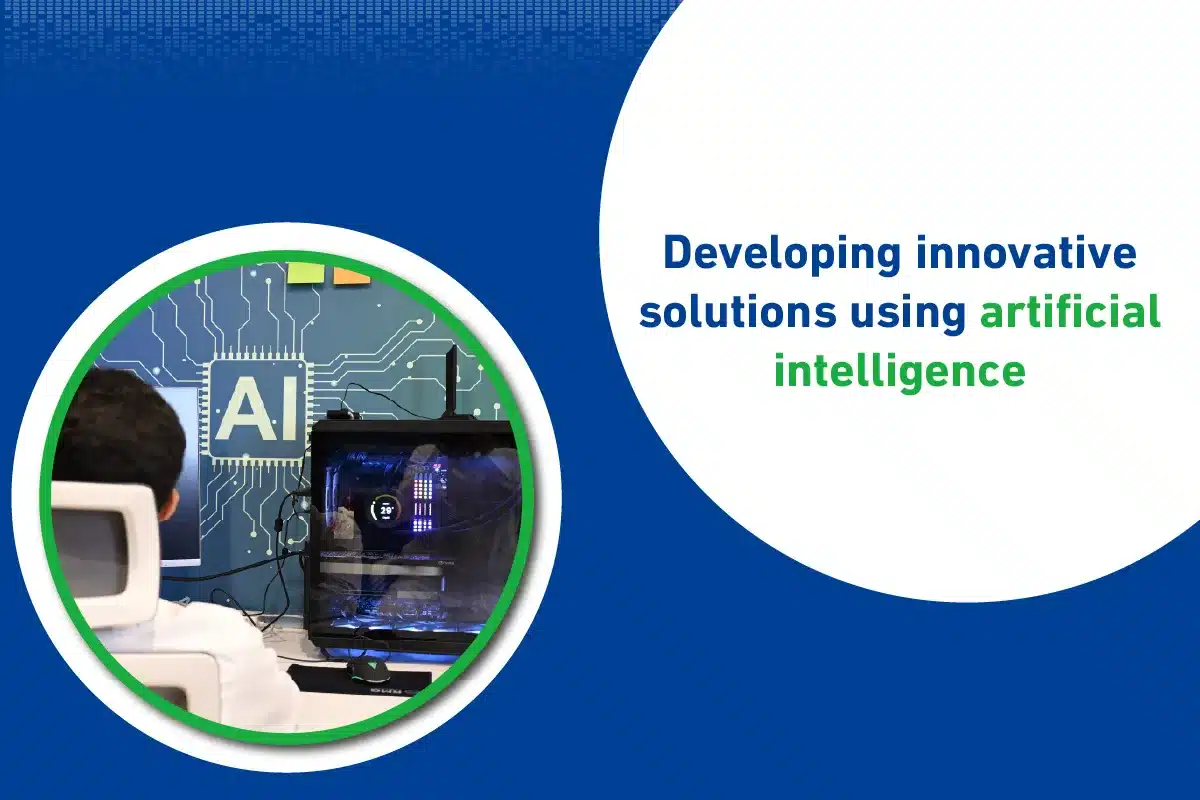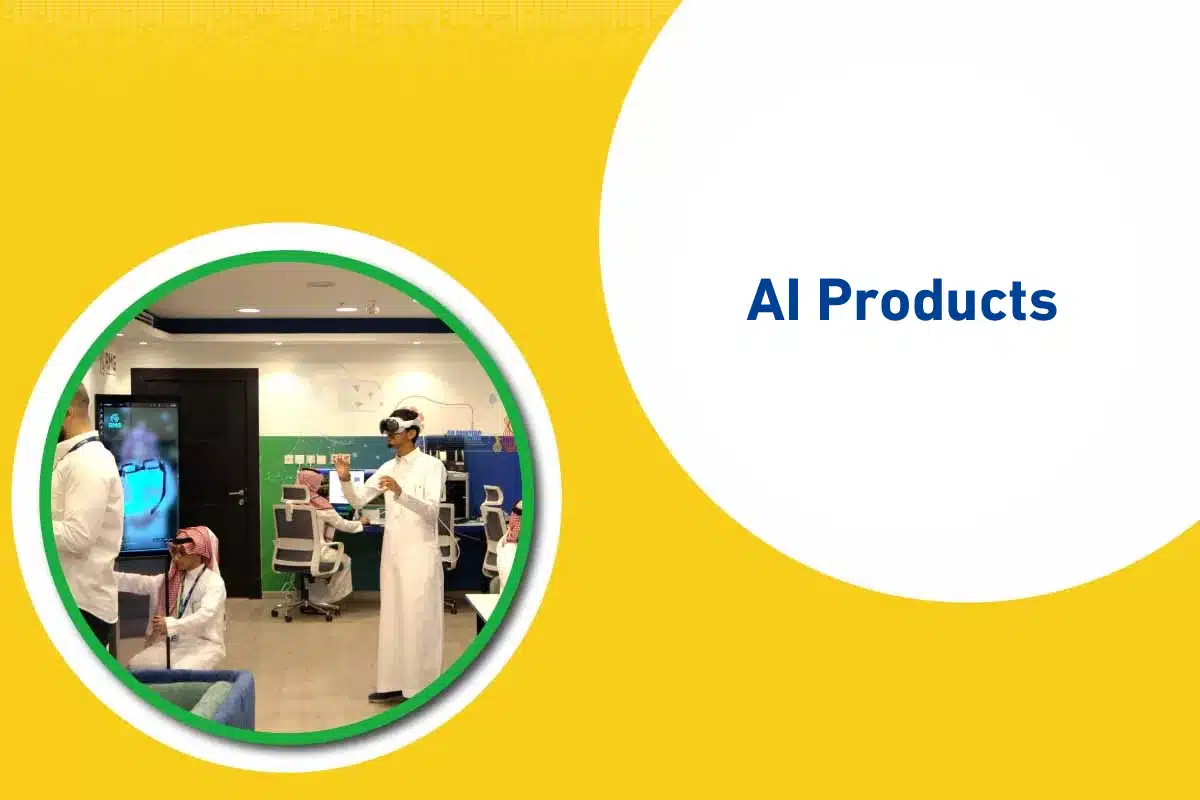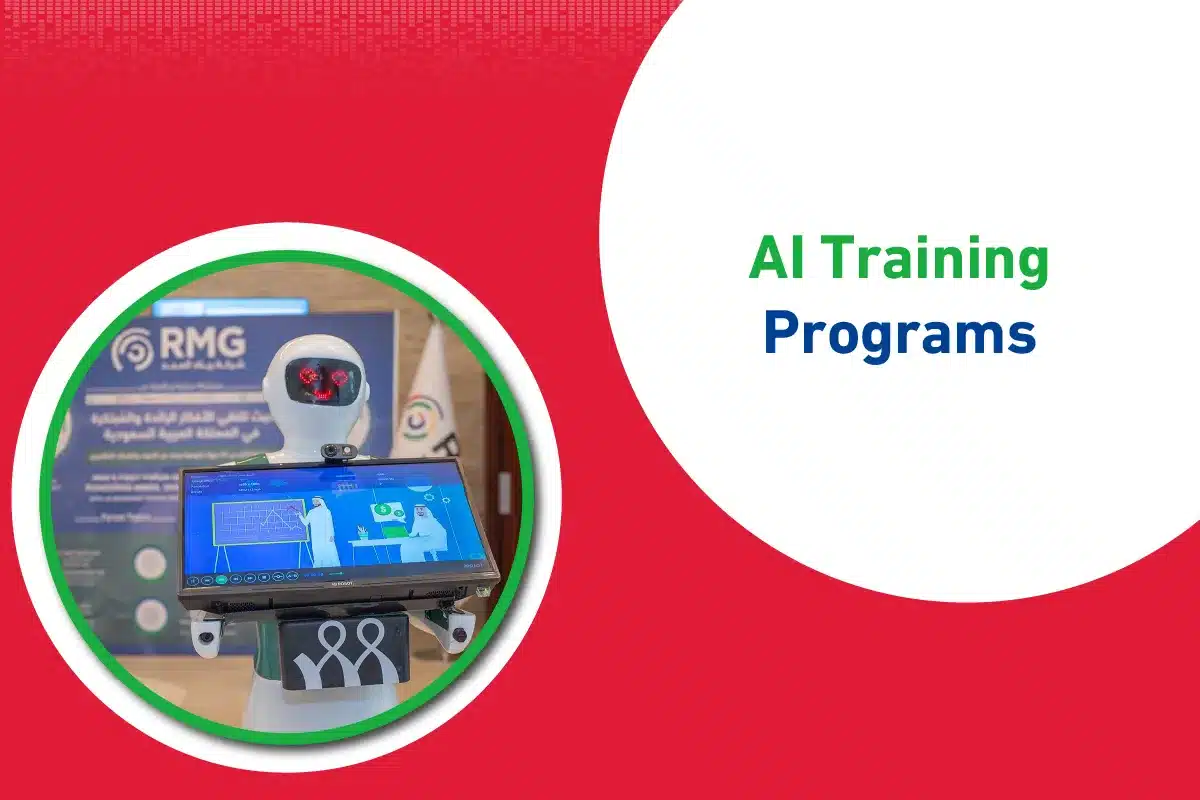Blog Body
As the jobs of yesterday disappear, the jobs of tomorrow are born from the womb of technology. Discover how digital transformation is redrawing the map of work in Saudi Arabia and the world, and what skills will secure your seat in tomorrow’s economy. Let’s explore together the impact of digital transformation on unemployment. Are you ready for the challenge?
When Technology Meets the Labor Market… The Dialectic of Fear and Hope
The world today stands on the threshold of a Fourth Industrial Revolution, fueled by data and driven by digital transformation. From artificial intelligence that writes poetry and analyzes financial markets to automation that manages production lines and warehouses, technology is permeating every vein of the global economy. At the heart of this mighty wave, a question resonates in the corridors of governments and companies alike: What is the impact of digital transformation on unemployment?
Are we facing a digital tsunami that will sweep away millions of traditional jobs, leaving behind armies of unemployed? Or are we witnessing merely a process of “creative destruction,” where old jobs die to give birth to new, more advanced, and innovative ones?
This article is not just an attempt to answer this complex question; it is a comprehensive guide that delves into this dialectical relationship. We will shed light on the global scene, then delve into the unique Saudi experience and how the Kingdom is addressing this challenge as an integral part of its ambitious Vision 2030, to discover together how this existential challenge can be transformed into a strategic opportunity for growth and prosperity.
Automation and Artificial Intelligence: How Technology Changes the Nature of Work?
To understand the impact of digital transformation on unemployment, we must first understand its mechanisms. The two main drivers behind this change are Automation and Artificial Intelligence (AI).
- Automation: Automation involves using technology to perform repetitive tasks that previously required human intervention. Think of factory robots assembling cars with extreme precision, accounting software automatically issuing invoices and settling accounts, or even automated response systems in customer service centers. These tasks are characterized by being rule-based and routine, making them ideal candidates for automated replacement to increase efficiency and reduce errors.
- Artificial Intelligence (AI): Artificial intelligence takes things to a higher level. It is not limited to routine tasks but extends to tasks that require analysis, inference, and even creativity. AI systems can analyze vast amounts of medical data to assist in diagnosing diseases, manage investment portfolios, or analyze consumer behavior to provide personalized marketing recommendations.
The “Future of Jobs” report by the World Economic Forum (WEF) indicates that by 2025, approximately 85 million jobs globally may be displaced due to this shift in the division of labor between humans and machines. The most vulnerable jobs are those involving data entry, routine accounting, administrative work, and assembly line tasks.

From Replacement to Creation: New Jobs Created by Digital Transformation
The view that is limited to job displacement is a narrow one. The other side of the coin reveals tremendous opportunities and new jobs that did not exist a decade ago. The technology that eliminates some tasks, in turn, creates an urgent need for completely new tasks.
In the same report, the World Economic Forum predicts the emergence of 97 million new jobs by 2025, meaning that the net outcome may be positive. These new jobs revolve around the digital economy and include:
- Data Analysts & Scientists: With data becoming the “new oil,” there is an urgent need for experts who can collect, clean, analyze, and extract strategic insights from this data to support decision-making.
- AI and Machine Learning Specialists: These are the minds that build, train, and maintain the intelligent systems driving the transformation.
- Cybersecurity Specialists: The more digital assets we have, the greater the need to protect them. Cybersecurity experts have become the digital gatekeepers for organizations.
- Software and App Developers: The entire digital economy is built on software, from mobile applications to complex cloud systems.
- Digital Marketing and Growth Strategy Specialists: The way companies reach their customers has changed, and understanding digital marketing channels and analyzing user behavior online has become an invaluable skill.
Therefore, the impact of digital transformation on unemployment is not just displacement but a radical “reshaping” of the labor market, where routine skills are replaced by advanced analytical, creative, and technical skills.
Digital Transformation in Saudi Arabia: The Engine of Vision 2030 and a Labor Market Challenge
The Kingdom of Saudi Arabia is one of the fastest countries in the world to adopt digital transformation, not as an option, but as a cornerstone in achieving the goals of Vision 2030 to diversify the economy and reduce reliance on oil. Through leading bodies and programs such as the Saudi Data and AI Authority (SDAIA) and the National Industrial Development and Logistics Program (NIDLP), the Kingdom is investing billions in building world-class digital infrastructure.
This acceleration has a direct and dual impact on the Saudi labor market:
- On one hand: Digital transformation in both the government and private sectors (such as the automation of services on the “Absher” platform, digital banking services, and smart factories) leads to increased efficiency, but it puts pressure on traditional jobs that were filled by low-skilled labor.
- On the other hand: This transformation creates a huge demand for national competencies specialized in the modern digital fields we mentioned earlier. The goal is not just to reduce unemployment, but to transition from “employment” to “qualitative Saudization” in the jobs of the future.
Therefore, the impact of digital transformation on unemployment in Saudi Arabia is closely linked to the Kingdom’s success in bridging the “skills gap.”
The Digital Skills Gap: The Bridge to a Secure Career Future
The real problem at the heart of this transformation lies in the “Skills Gap“; which is the gap between the skills currently possessed by job seekers and the skills required by the new jobs created by the digital economy. It is not enough to have new job opportunities if there is no one with the necessary skills to fill them.
Possessing a traditional university degree is no longer sufficient. The skills required today include:
- Digital Literacy: The basic ability to effectively use digital tools and platforms.
- Critical Thinking & Problem Solving: The ability to analyze complex situations and find innovative solutions.
- Data Analysis: Understanding the basics of dealing with data and extracting meaning from it.
- Creativity & Innovation: The ability to think outside the box and develop new ideas.
- Lifelong Learning: The desire and ability to continuously acquire new skills to keep pace with rapid changes.
Bridging this gap is a shared responsibility that falls on governments through support and training programs, educational institutions through curriculum updates, companies through investing in their employees, and individuals through adopting a culture of continuous learning.
Renad Al Majd: Building Bridges to a Digital Future for Organizations
In the midst of this enormous transformation, organizations cannot stand idly by. Adopting digital transformation is no longer an option related solely to increasing profits; it has become an existential necessity for survival and competition. This is where the strategic role of a company like Renad Al Majd (RMG) comes into play.
Renad Al Majd does not just offer technical solutions; it acts as a strategic partner, helping organizations cross the digital transformation bridge safely and effectively. We understand that the impact of digital transformation on unemployment can be transformed from a threat into an opportunity through proper implementation. Our services in areas such as Enterprise Resource Planning (ERP), cloud solutions, and data analytics are not intended to replace employees but to empower them.
When we implement an advanced ERP system, we free the accountant from routine data entry tasks to become a financial analyst contributing to strategic decisions. And when we help a company migrate to the cloud, we give their IT teams the tools to innovate instead of wasting time maintaining servers. We build systems that make employees more valuable, not less.
Don’t Be a Spectator, Be a Leader: How Renad Al Majd Helps You Turn Challenge into Opportunity?
Facing the challenges of digital transformation requires vision and a partner capable of turning that vision into reality. The decision you make today will determine your organization’s position in tomorrow’s economy.
A call to business leaders, HR managers, and decision-makers in the Kingdom:
Are you ready to lead the transformation instead of being led by it? Do you want to equip your workforce with future skills and transform your organization into a productive and innovative work environment?
The expert team at Renad Al Majd is fully prepared to provide strategic consultation, not just to understand your technical needs, but to understand your human and developmental goals. We help you to:
- Assess your digital readiness: Identify strengths and weaknesses and develop a clear roadmap.
- Implement smart solutions: Deploy technologies that increase your employees’ efficiency and empower them.
- Provide support and training: Ensure your teams have the necessary skills to make the most of new tools.
Don’t let your organization’s future be shaped by chance. Contact Renad Al Majd today, and let us help you build a flexible and future-proof organization, effectively contributing to the Kingdom’s vision and securing a place for its employees at the forefront of the new digital economy.



















